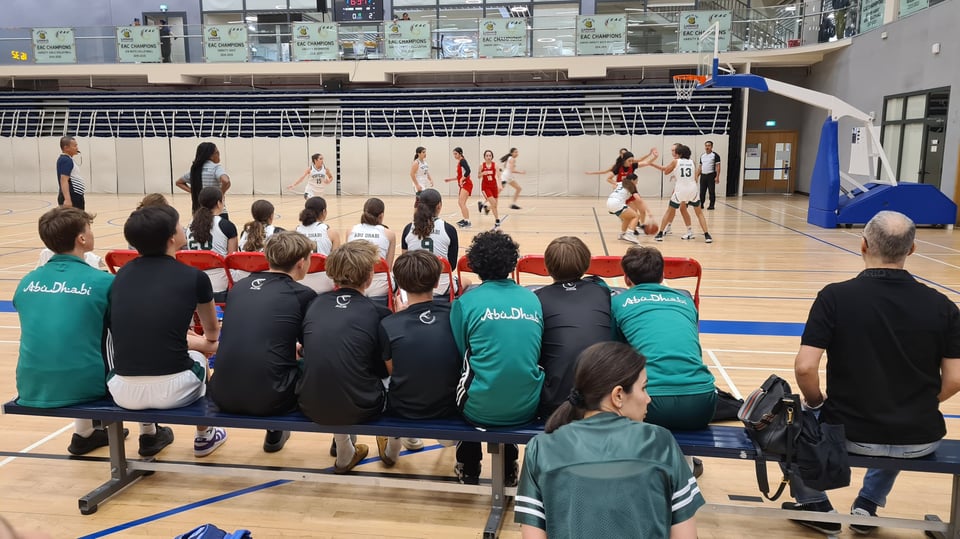The Time Lost to Commuting
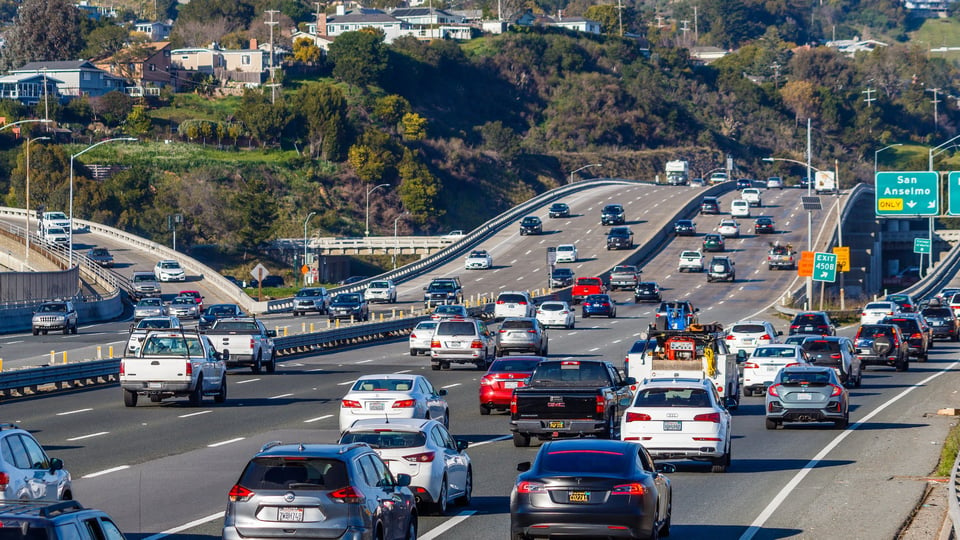
There are a handful of peculiar American institutions: overdraft fees, health insurance tied to your employer, and my topic today—the commute. Sure, people in other places drive to work, obviously. However, the “live in the 'burbs, work in the city” commute feels deeply American and helps explain our car culture and the popularity of those silly Stanley tumblers.
I used to not commute, now I do.
Here in Abu Dhabi, we recently moved into a new school building. Our school was scheduled to move to the new campus in fall 2023, but due to construction and pandemic-related delays, the move was postponed until January. I wanted to write about our move for a few weeks but the AI scams and deep fake stuff caught my attention. So this week’s newsletter is less newsy and more me processing things aloud.
One of the things I have enjoyed about life in the Gulf is how walkable my neighborhood is. I could leave for work at 7:51 and be there by 7:58. I walked to groceries. I walked to the butcher shop and the bakery. I walked to the pub. I walked to shawarma, Ethiopian, Lebanese, Yemini, Tim Horton’s and Shake Shack.
Readers know how wonky and data-obsessed I can be. I tracked my car trips in October and averaged fewer than 2.2 per week. I lived an urban planner's dream.
But in everyone’s life, a little rain must fall or in my case, sand blow. Our apartment is located in the heart of the city but our new campus is in the 'burbs. This is common for older, established international schools. They get their first campus in the urban core but when they outgrow that footprint, either the core has now filled in around them or the land in the core is too pricey, so they move to the sticks. That’s how you get names like “The American School Of Bangkok Green Valley” and “The British International School KL Lower Hill.”
Our new campus is located in Saadiyat (pronounced sah-dee-yot), tucked behind the NYU Abu Dhabi Campus where a fair number of my students' parents work. By design, Saadiyat is intended to be a cultural hub. Put differently, the old campus was across the street from the US ambassador’s residence and near a bunch of government agencies. We’re now about 2km from the Louvre Abu Dhabi and the Guggenheim that’s under construction.
Some photos from The Lab:
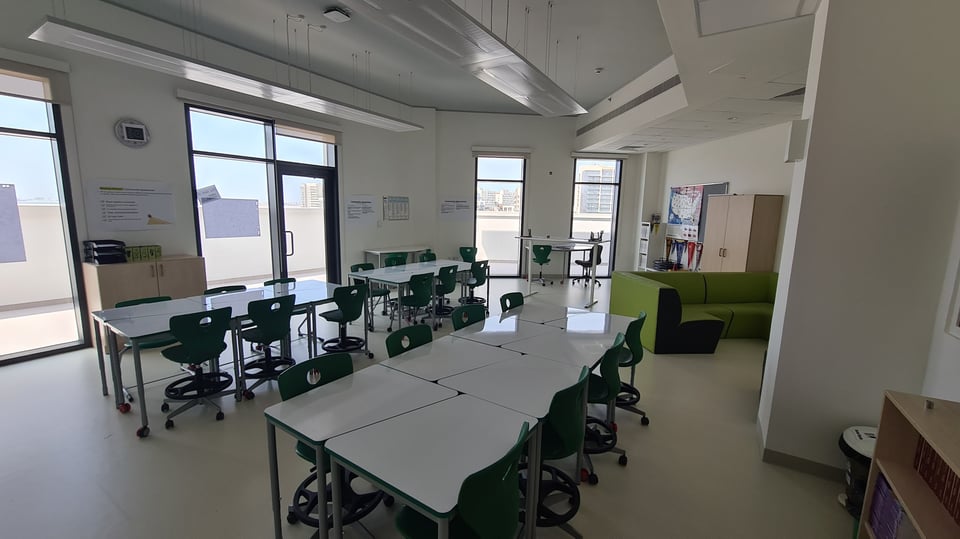
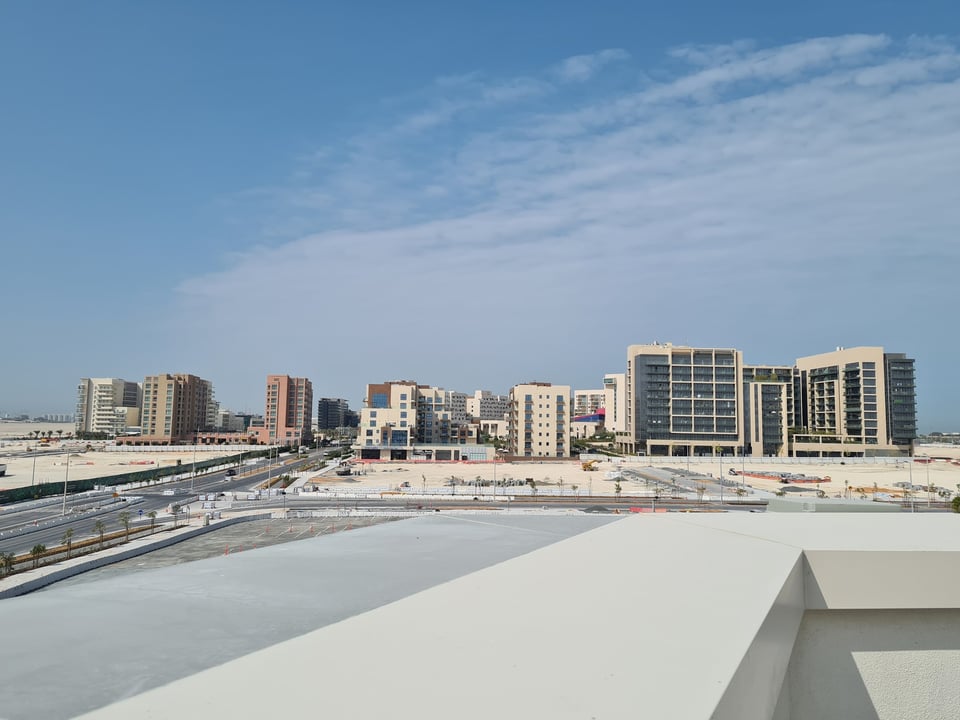
I now find myself with the longest commute I’ve had since 2004 (it was a drive from my apartment in Steilacoom, WA to my job at a UPS warehouse in Tumwater, for those who are curious).
A thirty-minute drive doesn’t sound like much and many of you have it far, far worse but when you’re habituated to a seven-minute walk, it means your workday just got an hour longer.
Listen, these aren’t big problems, but they’re my problems.
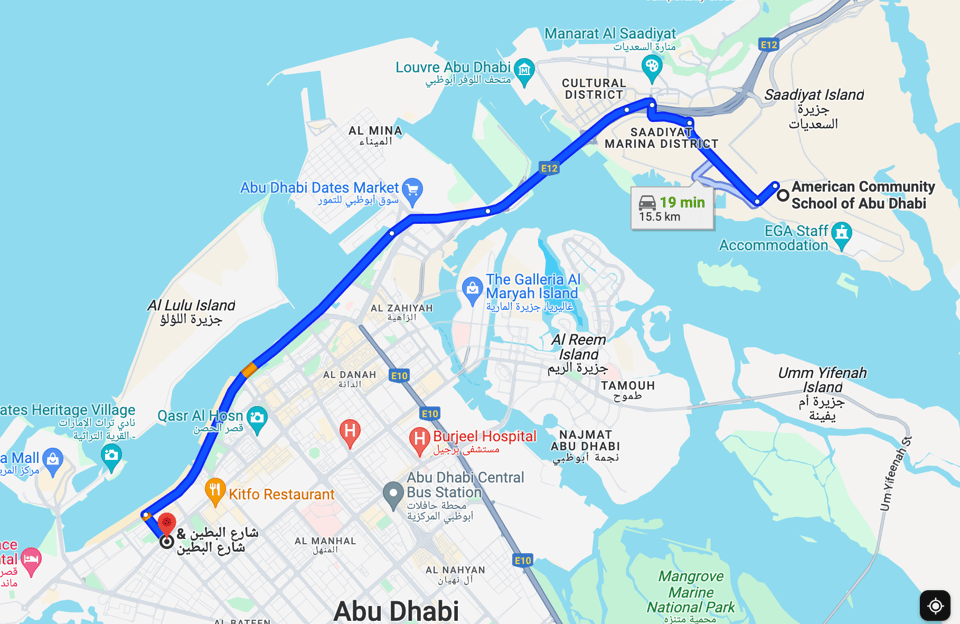
All of this has made me think about the American commuter lifestyle that I had evaded. I feel a bit like Michael Corleone in Godfather III, “Just when I thought I was out, they pull me back in!”
Over ten years ago, right after Hope and I purchased our home in East Tacoma, I remember reading this Annie Lowery piece from Slate and feeling validated in our choice to live where we taught. I revisited it this week and it stands up. The gist of the article is clear from the opening paragraph:
This week, researchers at Umea University in Sweden released a startling finding: Couples in which one partner commutes for longer than 45 minutes are 40 percent likelier to divorce. The Swedes could not say why. Perhaps long-distance commuters tend to be poorer or less educated, both conditions that make divorce more common. Perhaps long transit times exacerbate corrosive marital inequalities, with one partner overburdened by child care and the other overburdened by work. But perhaps the Swedes are just telling us something we all already know, which is that commuting is bad for you. Awful, in fact.
Indeed.
According to the Census Bureau, the average American has a one-way commute time of 27.6 minutes, roughly matching my own. But the nature of averages means that roughly half of Americans have a commute longer than that, some much longer. And people that commute via transit in the US spend on average 46.6 minutes on a one-way commute, a time tax of nineteen minutes, twice per day.
In the article, Lowery also talks about how it’s commuting, not long work days, that robs us of our time and energy:
Take a worker with a negligible commute and a 12-hour workday and a worker with an hour-long commute and a 10-hour workday. The former will have healthier habits than the latter, even though total time spent on the relatively stressful, unpleasant tasks is equal.
I get this. I feel a sense of purpose from teaching. Meaningful conversations about complex issues are energizing. Windshield time, no matter how great the playlist or podcast you’re listening to, is tiring and bad for your health. As Lowery added, “Vehicle-miles traveled had a stronger correlation with obesity than any other factor” (emphasis added).
While the burden of long commutes affects everyone, in the US it falls disproportionately on lower-income individuals and gig workers. Imagine spending two hours each day packed in a bus or battling traffic, to get to and from a job that doesn't offer basic benefits. This eats away at their limited leisure time, leaving them less time for family and rest. Moreover, the financial strain is significant. Gig workers, for example, spend a large portion of their earnings on fuel and vehicle maintenance, further squeezing their already tight budgets.
Many of the people with the worst and longest commutes are low-income people, largely service sector workers, who’ve been priced out of the urban core and more dense transit networks. So, our commuting problems are related to our unwillingness to build more housing in urban cores.
For us, the commute is not the end of the world and we still enjoy our work situation.
We came to Abu Dhabi for a two-year adventure and suddenly we’ve been here for half as long as I worked at Lincoln. We’ve considered moving to Saadiyat but we like the hustle and services in our neighborhood. I have become a “city guy” more than I ever expected to. That’s part of the reason we’re here.
--
The newsletter is early today because I'm coaching the JV Boys in the regional end of season tournament in Dubai. We tip-off at 2:30 pm local time in the third place game.
